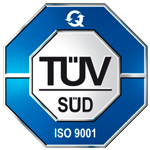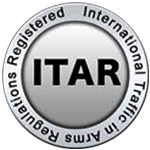Unlocking Global Markets for Best CNC Turning Parts with 2023 Import Export Certification Insights
In the rapidly evolving landscape of global manufacturing, the demand for high-quality CNC turning parts has surged, driven by the need for precision components across various industries. According to a 2023 market analysis by Grand View Research, the CNC machining market is projected to reach $100 billion by 2025, highlighting an increasing reliance on CNC turning technologies to meet consumer and business needs. With the rise of advanced materials and automation, manufacturers are now focusing on not only enhancing production capabilities but also navigating the complexities of import-export regulations. Understanding these 2023 import-export certification insights is crucial for businesses aiming to unlock new global markets for their CNC turning parts, ensuring compliance and fostering competitive advantage in a crowded marketplace.

Emerging Technologies Shaping CNC Turning Parts by 2025
The CNC turning parts market is on the cusp of significant transformation fueled by emerging technologies. With projections indicating the CNC machine market will soar from $101.22 billion in 2025 to $195.59 billion by 2032, this growth is driven largely by advanced manufacturing processes, particularly AI integration and multi-axis machining capabilities. These innovations enable higher precision and efficiency in production, which are essential as global demand for quality machined parts continues to rise.
By 2025, the landscape of CNC turning parts will be further shaped by developments in robotics and control systems. CNC robotics will not only enhance the capabilities of existing machines but also introduce new applications that will redefine manufacturing processes. Additionally, investments in cutting-edge technology from manufacturers indicate a commitment to sustainability and improved production methodologies. Educational initiatives, such as CNC machining courses, are also fostering a skilled workforce ready to meet the demands of this evolving market. As these technologies converge, the future of CNC turning parts appears poised for unprecedented growth and innovation.
Essential Import Export Certifications for Global CNC Trade
In today's competitive landscape, understanding essential import-export certifications is crucial for businesses involved in the global trade of CNC turning parts. The correct certifications not only facilitate smoother transactions across borders but also enhance trust among partners and clients. For instance, certifications like ISO 9001 and CE mark serve as benchmarks, assuring customers of product quality and compliance with international standards. These certifications are particularly critical for manufacturers aiming to enter markets in Europe and North America, where regulatory scrutiny is high.
Moreover, navigating the complexities of import-export regulations can be daunting, but staying informed about the latest certification requirements can unlock opportunities in emerging markets. Importers and exporters should familiarize themselves with regional regulations, as they can vary significantly across different countries. Understanding tariff classifications and ensuring compliance with local laws can provide a competitive edge, allowing companies to position themselves favorably in the global CNC market. This proactive approach to obtaining the necessary certifications is key to driving growth and expanding reach in an increasingly interconnected world.
Advantages of High-Quality CNC Turning Parts in Global Markets
As the global demand for precision engineering continues to surge, high-quality CNC turning parts play a vital role in the competitive landscape of manufacturing. These components offer unparalleled accuracy and consistency, which are essential for industries ranging from automotive to aerospace. With the projected growth of the CNC machine market, expected to reach $195.59 billion by 2032, manufacturers are increasingly recognizing the advantages of sourcing high-quality parts that enhance overall operational efficiency.
The flourishing market for CNC turning parts is further propelled by advancements in technology, including the integration of AI in machining processes. This technological evolution not only streamlines production but also ensures that manufacturers achieve superior quality standards. Companies that prioritize the use of high-quality CNC turning parts can significantly reduce production downtime while increasing their reliability in the eyes of clients. As OEMs turn to dependable sourcing partners, the emphasis on high-quality machined components is becoming more pronounced, positioning businesses for sustained growth and success in the ever-expanding global marketplace.
Strategies for Navigating International Trade Regulations
Navigating international trade regulations is crucial for businesses looking to access global markets for CNC turning parts. As of 2023, the global CNC machinery market is projected to reach USD 100 billion, with CNC turning parts playing a significant role in this growth. However, complex regulations can pose challenges. According to the International Trade Administration, nearly 25% of companies report difficulties with tariffs and trade compliance, which can lead to costly delays and setbacks.
To successfully enter international markets, companies must adopt proactive strategies for compliance. Implementing robust documentation practices, such as staying updated on import-export certification requirements, can streamline the process. A study by McKinsey indicates that companies that invest in compliance management systems can reduce operational risks by up to 30%. Additionally, understanding regional trade agreements like the USMCA and EU regulations can provide competitive advantages, enabling businesses to optimize their supply chains and minimize costs. By investing in compliance and leveraging trade insights, manufacturers can unlock new opportunities in the global marketplace.
Future Trends in Manufacturing: CNC Innovations and Beyond
The manufacturing landscape is rapidly evolving, with CNC technologies leading the way in efficiency and precision. According to a report by MarketsandMarkets, the CNC machine market is projected to reach $100 billion by 2025, driven by advancements in automation, IoT integration, and smart manufacturing processes. Manufacturers are increasingly embracing these innovations to enhance productivity and reduce operational costs. As businesses seek to globalize their operations, understanding export certification requirements becomes crucial to tap into international markets effectively.
**Tip:** Stay informed about the latest CNC technologies by subscribing to industry newsletters or attending webinars. Continuous learning enhances your competitive edge in the market.
Moreover, the focus on sustainability is reshaping CNC manufacturing practices. Companies are investing in eco-friendly materials and processes to meet emerging regulations and consumer demand for sustainable products. The global CNC machining market is expected to witness a compound annual growth rate (CAGR) of 6.3% from 2023 to 2030, indicating a robust trend towards environmentally responsible manufacturing.
**Tip:** Consider implementing energy-efficient CNC machines to decrease your carbon footprint, while also appealing to environmentally conscious clients and partners in the market.
NORTH EASTON MACHINE • 218 Elm Street • North Easton, MA 02356 • 508-238-6219

